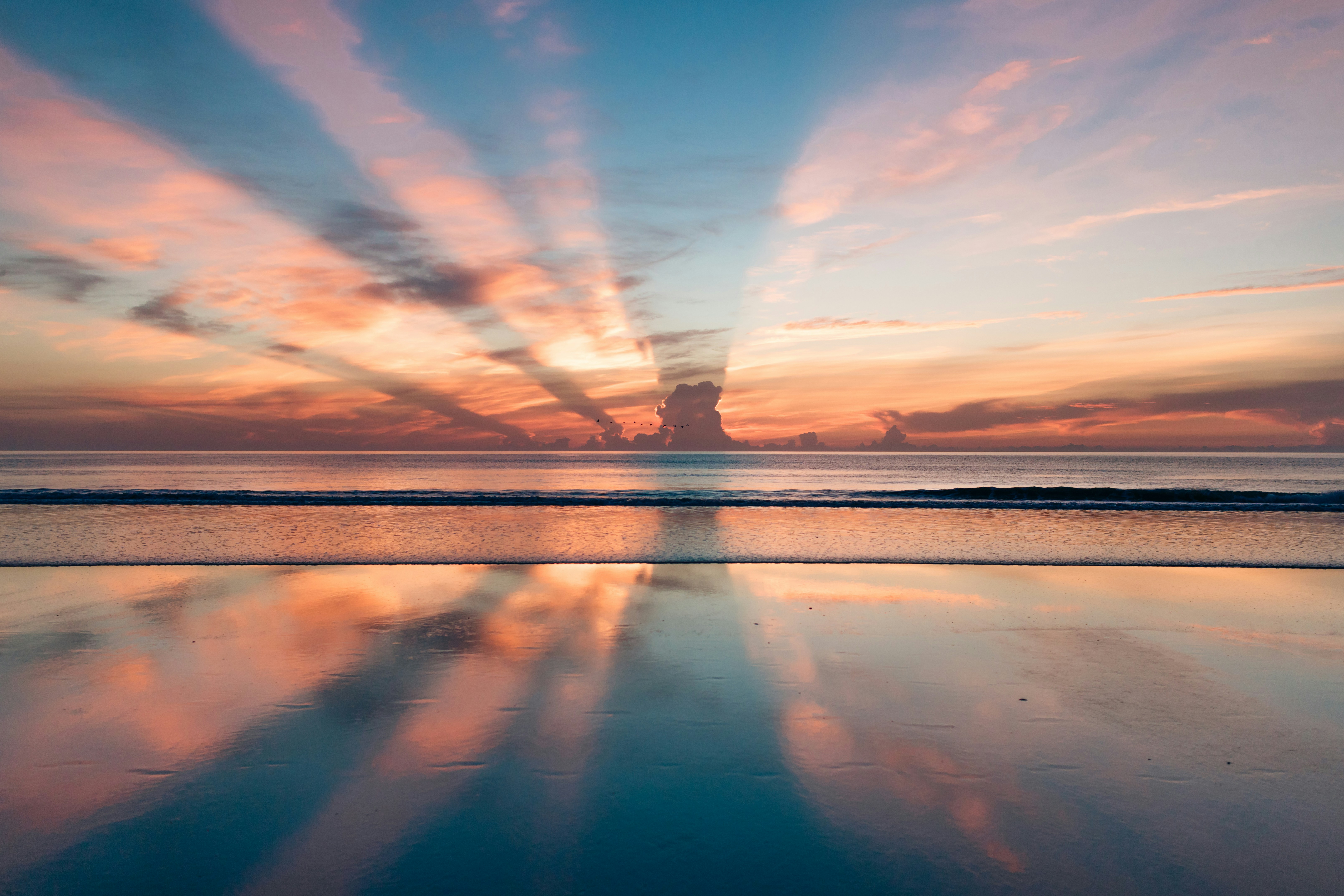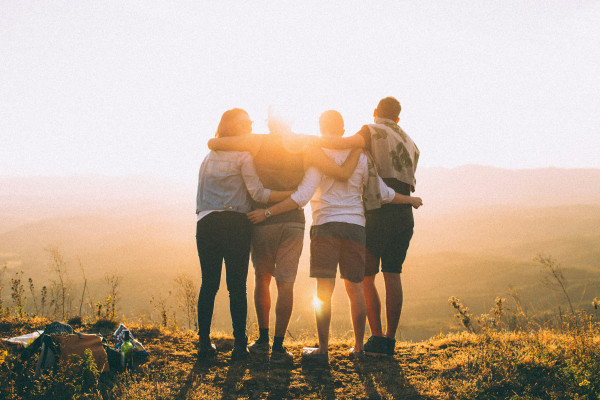
Psychedelics like shrooms and LSD are under the scientific spotlight at the moment, with recent research examining how these substances can be used as part of therapy.
But for most people, their psychedelic experiences – even the most profound ones – come in the context of taking a drug in a recreational setting, whether that be a festival, a camping trip or your own bedroom. There’s not a lot of guidance on how to stay mentally well during or after a trip, or how to bring the insights you might have gleaned back into your own life.
We talked to Geoff*, a psychotherapist who works with people looking to understand their psychedelic experiences, about how you can set yourself up for a good experience and work those learnings into your day-to-day life.
Psychedelics and mental health conditions
As there are some mental health conditions that can be worsened by using psychedelics, Geoff strongly advises people to be cautious and do careful research before tripping.
“Take a lot of care if you are someone who has bipolar, schizophrenia or a family history of schizophrenia, psychosis, suicidal thoughts or are in very dissociative states.
“Other states to be careful around include severe trauma, projection and paranoia.”
Geoff describes psychedelics as ‘non-specific amplifiers.’
“Psychedelics amplify what’s going on in the psyche and in the brain, and for some people, the last thing they need right now is an amplifier.”
We recommend talking to your doctor or mental health professional before embarking on any psychedelic exploration if you have mental health conditions.
Pack your bags before you trip
Even if you’re not experiencing mental distress, it’s still a good idea to check in with yourself before tripping.
Many people are familiar with the phrase ‘set and setting’. Set refers to your internal mindset – what’s on your mind, how you’re feeling and what’s been coming up for you lately. Setting refers to where you are, who you’re around and what’s going on externally.
You’re much more likely to have an unpleasant experience if you take a drug when you’re feeling stressed, nervous, or are having distressing thoughts, or if you’re somewhere that makes you feel uncomfortable or with people that you don't trust. We’ve got more tips here for making a plan before you trip.
Geoff says it’s about being deliberate and taking the time to think about the experience you're creating.
We’d add that it’s important to know what you’re taking – so get your drugs checked. We’ve seen synthetic cannabinoids sold as DMT and NBOMes sold as acid.
Have a think about dosage, too. Start with a low dose and wait to see how it affects you.

Who are you bringing on your trip?
“A really important thing is asking yourself, who knows that you’re going on this trip and how do they feel about it? Even if you’re doing this entirely by yourself, how you’re being held in mind by someone else is profoundly important,” says Geoff.
“In psychedelic spaces we can get so tangled up if other people are concerned, worried or disapproving – we’re having to manage them, whether they’re with us or not. It can be a major complication.”
On the other hand, if you have someone supportive you know you can call on when you’re tripping, this could help put your mind at ease during trickier periods of the trip. Whether they’re there in person or on the other end of a phone call, let your trip buddy know beforehand what you’ll be taking and what you’re hoping to explore.
After the trip, Geoff recommends working out who can help you unpack your experience. This is where psychedelic integration comes in.
What is psychedelic integration?
Psychedelic integration can help you make sense of what happens on a trip and bring those learnings and experiences back into your daily life. Geoff says his therapeutic interest in psychedelic integration comes from his own experiences.
“I’d had my own psychedelic experiences that felt like they shone a bright spotlight on some kind of state or experience within me... and then a few weeks afterwards life was back to normal as if that hadn’t happened. There were no clear steps on how to integrate that into my life. The psychedelics didn’t do that work for me.”
Throughout his work with his psychotherapy clients, Geoff noticed that many were wondering the same thing.
"So many people have these powerful experiences - it shakes things up a little bit, and then how does that translate into their relationship with their body, their emotions and intellect... as well as their partner, friends, community, and attitudes to society."
There are many ways of doing psychedelic integration, but Geoff says one of the simplest – and most powerful – is simply to find people who you can talk to meaningfully about your experience.

Talking about your trip
“You’re ideally looking for people you can discuss it with who you know will be open-minded and non-judgmental, but also people who can help you dig deeper than ‘woah man, that was so trippy,’” says Geoff.
Part of the benefit, says Geoff, is finding a different perspective on your experience.
"The way we see things is filtered through our opinions and biased. Someone else might be able to point out, gently, when things don't make sense. Whether psychedelics are involved or not, we are able to utilise another person as a source of insight."
Those people could be a group of like-minded friends, a therapist or counsellor, or a psychedelic integration group.
When working with clients to integrate psychedelic experiences, Geoff says it’s often about grabbing onto a key realization a client has had and helping them bring that back into their daily life. He described working with someone who had a powerful psychedelic experience where they felt a visceral sense of care and love for themselves – for one of the first times in their life.
“If this is someone’s first experience of caring for themselves, and that's been made accessible through the trip, that’s what I’m interested in. That person having that new reference point as ‘I know this is possible within myself’ is massive.”
If you’re interested in working with a therapist to help you understand your psychedelic experiences, it’s worth remembering that therapists and counsellors won’t report you to the police. They can only do that if they think you’re at serious risk of harm to yourself or someone else.
As for finding a therapist with psychedelic knowledge, Geoff says it may be more about finding one that you click with.
“It’s more about ‘do they understand the way I operate, and can they help me usefully with that?’ I think that’s more valuable than ‘has this person taken psychedelics’ or ‘have they done a training on it’. Shop around and trust your own judgement.”
Psychedelic preparedness
If you’re interested in using psychedelics specifically to work on your mental state, Geoff says that mindfulness and meditation can help.
“One thing I point people to initially before they do psychedelic work is to pick up a mindfulness or meditation practice. Mindfulness and meditation can give you some experience navigating altered states of consciousness, working with attention and that element of surrender.
“I did a massive amount of [mindfulness and meditation] before I ever touched any psychedelic in a non-recreational way, and I was really glad of that. I felt like a number of states I’d at least tasted without any psychedelics on board, so I had some familiarity with the territory.”
And Geoff, in his gentle way, encourages people interested in the psychedelic experience to look beyond just self-improvement – it can be a powerful way to connect with others in your life and the world around you.
Related stories
Recent stories
SMART Recovery: Support groups without the need for abstinence or a higher power
We explore what it is and how it has positively affected people's lives.
Kamini: What you need to know
EDs and doctors have seen more people seeking help for opioid overdose, withdrawal, and addiction after using kamini. Here's what you need to know about the opioid-containing remedy.
Pseudoephedrine: what you need to know
Pseudoephedrine is back on the shelves. Here's what you need to know about this cold & flu medication.